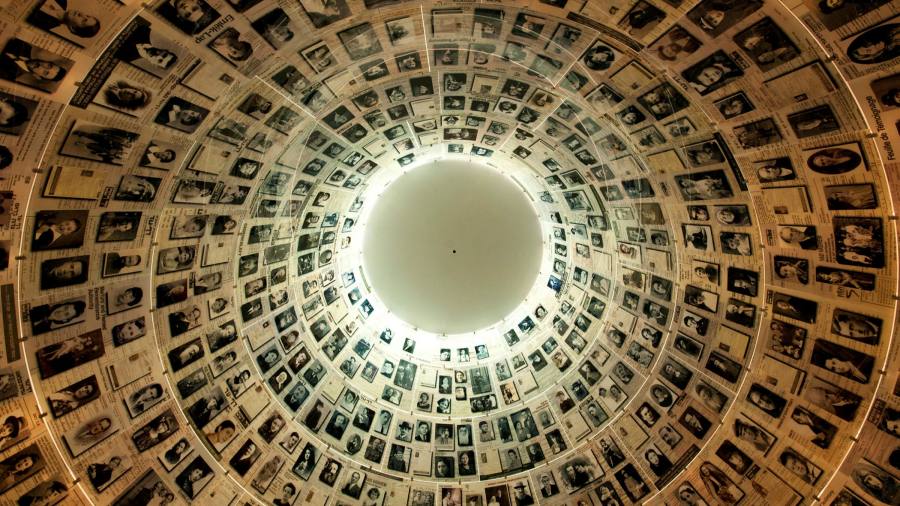[ad_1]
A Polish court has ordered two scholars to apologise to a woman for defaming her deceased uncle in a book, in a case that has been closely watched for its implications for research in Poland into the Holocaust.
The court in Warsaw said Jan Grabowski and Barbara Engelking should apologise to Filomena Leszczynska, for damaging the honour of her uncle, who was mentioned in Dalej jest noc (Night without end), a 1,600-page work they co-edited that charted the fate of Jews in parts of Poland after the country was invaded and occupied by Nazi Germany in 1939.
However, the court said the academics would not have to pay the 100,000 zlotys (€22,345) in damages that Leszczynska had requested, stressing that its ruling must not have “a cooling effect†on academic research.
A lawyer representing Grabowski, a professor of history at the University of Ottawa, and Engelking, professor and head of the Polish Centre for Holocaust Research in Warsaw, said they would appeal.
The civil case has drawn widespread attention as it comes against a backdrop of what critics see as a push under Poland’s ruling conservative-nationalist Law and Justice party to emphasise Polish heroism and suffering, particularly during the second world war, and play down darker episodes in the country’s history.
The Holocaust remains an intensely sensitive topic in the country, which lost about 6m citizens during the second world war. Roughly 3m of those were Polish Jews.
Poland never had a collaborationist government, and although the Nazis imposed the death penalty on any Pole caught helping Jews, thousands still did. The Yad Vashem Holocaust memorial centre in Jerusalem recognises 7,112 Poles — more than any other nation — for their bravery in saving Jews.
However, in recent years, scholars have turned their attention to the role played by some Poles in killing Jews, such as during a massacre in Jedwabne in 1941. Debate around the topic has become highly charged.
In a separate case last week, a journalist was questioned by police after writing an article last year that mentioned “Polish complicity in the Holocaustâ€.
The verdict delivered on Tuesday related to a brief passage in Dalej jest noc dealing with the wartime behaviour of Edward Malinowski, an elder in the village of Malinowo, who helped a Jewish woman, Estera Drogicka, to survive by passing her off as a non-Jew.Â
However, the text also said Drogicka was “aware that he [Malinowski] was co-responsible for the deaths of several dozen Jewsâ€, who were hiding in a forest until they were denounced to the Germans.
Malinowski was acquitted of collaborating with the Germans in a trial after the war.Â
Lawyers for Leszczynska, who was supported by the Polish League Against Defamation (RDI), a group that campaigns against unjust portrayals of Poland, argued the depiction of her uncle was false, wrongly turned him from a hero who had saved Jews into a criminal, and infringed her personal rights.
“The problem is — and this is the essence of this case — that historical research comes with responsibility. You can’t do this research in a careless way, with methodological mistakes, with the consequence that this hits innocent people,†Maciej Swirski, head of the RDI, said in an interview with the Financial Times before the verdict.
However, Grabowski argued that the case against him and Engelking could deter researchers from dealing with the Holocaust. Speaking to the FT before the verdict was delivered, he said the case was “a broadside fired against all independent researchers in humanitiesâ€.
Swirski of the RDI said Leszczynska’s lawsuit was a “private case of a private person, who turned to a private organisation for support†and that any suggestion that it was part of an effort to pressure Holocaust researchers was “simply inflated propagandaâ€.
However, the decision to take Grabowski and Engelking to court has been roundly condemned by academics both in and outside Poland. The Yad Vashem Holocaust memorial centre described it as “a serious attack on free and open researchâ€.
The World Jewish Congress reacted with “dismay†to the verdict, and said it hoped that “the day will come when decisions regarding the integrity of history will once again be left to historians and not politicians or judgesâ€.
[ad_2]
Source link





